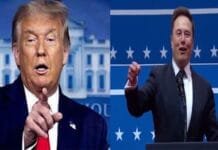In a stunning turn of events during Sri Lanka’s presidential election held on September 21, leftist leader Anura Kumara Disanayake has emerged victorious, marking a significant political shift in the country. Disanayake, representing the National People’s Power coalition, secured 52 percent of the votes, defeating outgoing President Ranil Wickremesinghe, who managed only 16 percent of the vote, finishing in third place. This election, conducted against the backdrop of a severe economic crisis, marks a pivotal moment for Sri Lanka as it seeks to rebuild and reform under new leadership.
Context of the Election: A Nation in Turmoil
The backdrop of this election is critical to understanding its implications. Sri Lanka experienced a profound economic crisis in 2022, characterized by widespread shortages of essential goods, soaring inflation, and significant public discontent. This turmoil culminated in large-scale protests, leading to the ousting of former President Gotabaya Rajapaksa. His administration faced accusations of mismanagement and corruption, prompting citizens to demand immediate political change. In the aftermath of these events, Ranil Wickremesinghe assumed the presidency in an attempt to stabilize the nation.
Election Day Dynamics: High Voter Turnout
The presidential election witnessed approximately 75 percent of eligible voters casting their ballots from a total electorate of 17 million. While this turnout was substantial, it fell short of the 83 percent recorded in the previous presidential election in November 2019. Despite the lower turnout, the election demonstrated a strong desire among the populace for change and a new direction in governance.
Anura Kumara Disanayake: The People’s Choice
Anura Kumara Disanayake, leader of the Janata Vimukthi Peremuna party, ran a campaign that resonated with voters disillusioned by the previous administration’s policies. His platform emphasized social justice, economic reform, and a commitment to addressing the grievances of the average Sri Lankan. Disanayake’s victory reflects a decisive rejection of the status quo and an endorsement of his vision for a more equitable society.
Political Landscape Post-Election
With Disanayake’s election, the political landscape in Sri Lanka has shifted dramatically. Sajith Premadasa, who finished in second place with 22 percent of the votes, is expected to lead the main opposition. This new dynamic sets the stage for potential collaboration or conflict between the ruling coalition and opposition parties, as they navigate the challenges ahead.
Challenges Ahead for the New President
As Disanayake prepares to take office, he faces an uphill battle. The economic crisis has left deep scars, and the new administration must address pressing issues such as food security, inflation control, and foreign debt management. The people’s expectations are high, and the new president will need to act swiftly to restore confidence and improve living standards.
Public Sentiment and Future Prospects
The sentiment among voters is cautiously optimistic. Many citizens view Disanayake as a beacon of hope, someone who understands their struggles and is willing to fight for their rights. However, the challenges of governance in a country recovering from economic collapse cannot be underestimated. The new administration must prioritize transparency, accountability, and genuine engagement with the public.
International Reactions to the Election
The international community is closely monitoring the developments in Sri Lanka. Many foreign governments and organizations are eager to see how Disanayake’s leadership will influence the country’s political and economic stability. Analysts suggest that a successful administration could lead to renewed international support and investment, critical for the nation’s recovery.
Conclusion: A Turning Point for Sri Lanka
In conclusion, the 2023 presidential election in Sri Lanka represents a critical juncture in the nation’s history. Anura Kumara Disanayake’s victory signals a clear demand for change and a rejection of the political practices that led to the recent crisis. As the nation embarks on this new chapter, the success of Disanayake’s administration will depend on its ability to unite the populace and address the pressing issues that have long plagued the country. The road ahead may be challenging, but the promise of reform and renewal offers a glimmer of hope for a brighter future in Sri Lanka.















